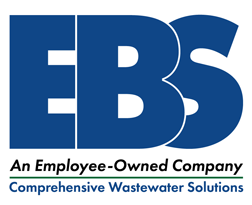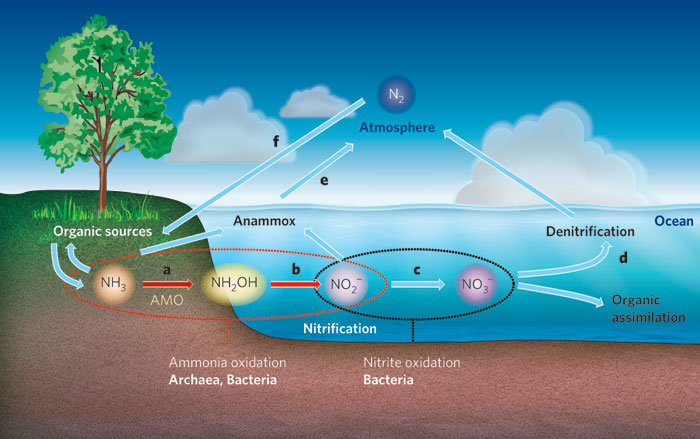Cold weather can turn wastewater plants topsy-turvy, upending all one’s hard work to maintain compliance. When you are attempting to maintain adequate nitrification in your wastewater treatment plant (WWTP) to ensure that nitrogen associated permit limits such as Ammonia-Nitrogen (NH3-N), Total Kjeldahl Nitrogen (TKN), and Total Nitrogen (TN) are met, it is essential to stay on top of nitrification.
Biological nitrification is a two-step process facilitated by nitrifying bacteria (nitrifiers) which convert ammonia (NH3) to nitrite (NO2–) and then to nitrate (NO3–). However, as temperatures decrease during the winter months, maintaining nitrification can prove challenging since cooler temperatures adversely affect the growth rate of nitrifiers. The optimal temperature for nitrifiers is approximately 90°F (32°C) with the growth rate of nitrifiers decreasing by half with every 18°F (10°C) drop below the optimal temperature. If cooler wastewater temperatures decrease the growth rate enough, nitrifiers may be removed from the WWTP through sludge wasting faster than they are replenished. Under this condition, NH3 breakthrough can occur which might potentially result in a permit violation.
To combat this problem, EBS offers NitriFireTM, a highly concentrated nitrifier product. NitriFire is used to supplement the existing nitrifier population so that NH3 conversion can continue at an adequate rate under slower growth rate conditions. NitriFire contains Nitrosomonas, a genus of bacteria that converts NH3 to NO2–, and Nitrobacter, a genus of bacteria that converts NO2– to NO3–, making it a complete nitrification product. NitriStar 750 has a specified NH3 to NO2– conversion rate of 750 mg NH3 per kg of product per hour and a specified NO2– to NO3– conversion rate of 250 mg NO2– per kg of product per hour. What separates NitriFire from other nitrifying bacteria products on the market is that the typical commercial nitrifier product contains little, if any, Nitrobacteria strains and has a specified conversion rate of only 500 mg NH3 per kg of product per hour. More conversion means less NH3 breakthrough, which means better permit compliance.
For more information on NitriFire, please contact EBS at info@ebsbiowizard.com or call 985-674-0660.

